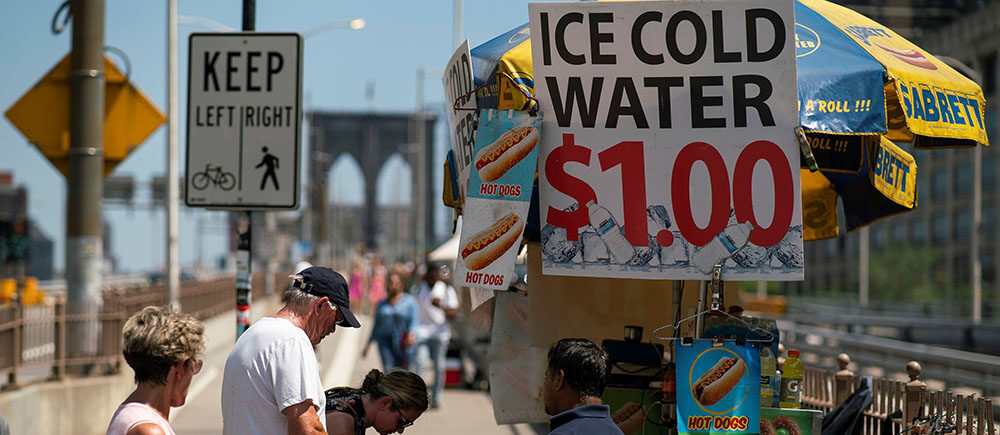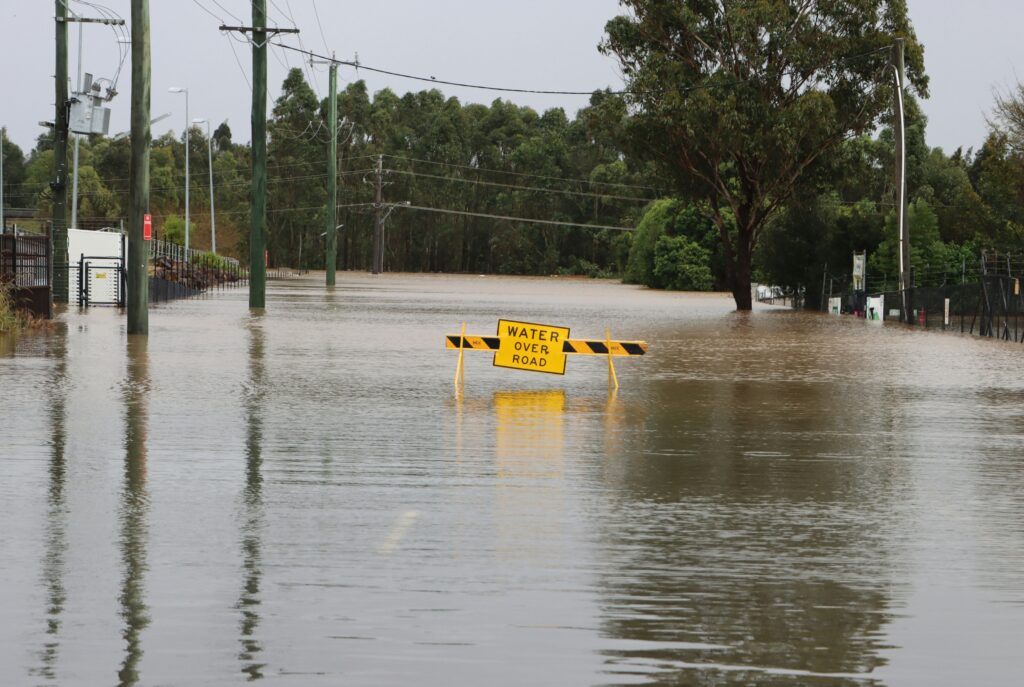It’s not all bad news. Really it’s not. Lately we’ve been highlighting some outbursts of climate sanity from unlikely places and we’d like to add another. Zeke Hausfather, whom we praised earlier this month for warning that some climate models are running way too hot, also recently said it was a bad idea to terrify children with tales of ineluctable climate doom and then tweeted “It's a bit eye opening how many times I, a climate scientist, have been called a denier in the last 24 hours for having the temerity to say our children are not necessarily consigned to an apocalyptic hellscape of a future. Doomism is a disease, and a self-fulfilling prophesy.” Disease, yes. But not a self-fulfilling prophecy except in the way it leads to bad policy choices that create economic doom.
If we open our arms to Hausfather, we might only prompt him to get some exercise sprinting the other way. But we’ll take that chance by noting that he did also recently express the view that the Guardian might be melting the Arctic faster than the average alarmist: “Reporting on this new Arctic heat study is missing a bit of context. Its warming around 3x faster than the rest of the world, but records from a single weather station tells us more about localized conditions (and, potentially, biases) than regional change”. Oh my. Caution with respect to isolated bits of data? Whatever comes next?
In his case a return to home base, with the claim that “while it is unlikely that the year as a whole will be the warmest on record due to persistent La Nina conditions, but we will end up with the 9 warmest years on record happening in the past 9 years.” Which is not true unless you fiddle the data from the 1930s and define “on record” as meaning “on the modern thermometer record” so as to exclude rubbish like the Holocene Climatic Optimum which, as a climate scientist, he should not do. Still, once you get the habit of breaking with the herd in the name of rational discourse, it’s a slippery slope to denialism.
The question of whether to seek political leverage by driving children to despair seems to be getting more and more negative answers these days. For instance Kelsey Piper, who as “a Staff Writer for Vox’s new vertical with a focus on the global poor, animal welfare, and risks affecting a stable future for our world” seems an unlikely candidate for a fit of sanity of any sort, just wrote:
“My 5-year-old daughter is now old enough to read a lot of books and magazines aimed at children, and it’s given me a whole new perspective on the discourse wars over how we talk about climate change, conservation, and the future of the planet. As I’ve written about before, climate change is going to be bad, and it will hold back humanity from thriving as much as we should this century. It will likely cause mass migration and displacement and extinctions of many species. What it won’t do, however, is make the Earth unlivable, or even mean that our children live in a world poorer than the one we grew up in. As many climate scientists have been telling us, the world is a better place to live in — especially for people in lower-income countries — than it has ever been, and climate change isn’t going to make it as bad as it was even in 1950.”
This sounds suspiciously like something we’d say. And guess what? She continues “’I unequivocally reject, scientifically and personally, the notion that children are somehow doomed to an unhappy life,’ Kate Marvel, a climate scientist at Columbia, told Ezra Klein in his column this week about overcoming climate despair.”
We also note an outbreak of sanity, within limits, over at Canary Media, where they’ve just realized wind turbines make for ugly trash and the problem is growing. It started with a piece in early June headlined “Climatetech’s surprising bottleneck: Land access” that (we’re tempted to say “finally” but hey, better late than never) started “There’s a bottleneck in climatetech that we don’t talk about enough: land availability. It’s a physical resource needed to support biomass, renewables, mineral mining and other essential tools of decarbonization.” And while it may not be the only problem or even the biggest one, the massive footprint of wind and solar is a major ecological as well as economic problem. And once you start talking about it, where will it lead?
In this case to major concerns about another aspect of this big mess. While they’re pretty chipper about the whole business including the prospects for renewables to take over the grid, they do concede that:
“A lot of the equipment that will make this crucial transition possible – and the valuable materials used to make it – could end up in landfills. If it’s not reused and recycled, this waste could wreak havoc on ecosystems and communities. It could also mean missing out on an accessible source of critical raw materials like lithium and cobalt, which are costly to mine and often produced in environmentally and socially harmful ways…. By 2030, the U.S. is expected to be decommissioning about 1 million metric tons of solar panels per year…”
Which we’ll believe when we see it, frankly. We’re not quite clear why anyone would throw valuable resources into a landfill when they could sell them or reuse them in their own operations. Economics is a difficult concept. But they’re starting to get it, or so it seems. Another recent Canary Media piece began with the usual blast at factory farming (with which, to be honest, we have considerable sympathy) before acknowledging that:
“here’s one nice thing to say about the ruthless industrialization of chicken: Over the last half century, it’s arguably done more to slow global warming than any other change in American life. The hyperefficiency of factory farms that treat sentient birds like edible widgets has made broilers cheaper” and the shift from beef to chicken, it claims, “has prevented massive amounts of greenhouse gas emissions…. The larger point isn’t that the nastiness of industrial chicken should be overlooked. It’s that climate action and climate policy almost always involve trade-offs.”
Yesssss! Tradeoffs! Thank you. (We even had a Canadian Liberal MP recently tell the House of Commons “Achieving net zero is not going to be easy, that’s for sure…. We are going to have to switch our lifestyles and that is going to be painful at times”.)
Mind you, Patrick Moore recently threw down a blunt challenge: “Wind & solar advocates ignore the amount of resources required to build the wind and solar infrastructure. I challenge the wind and solar industries to build their tech using only wind and solar energy. They are a parasite on the larger economy.”
They won’t be taking him up on that dare any time soon. But let us not carp. A lot of alarmists are discussing practical difficulties and we say keep it up. Because, as we also say, once you start doing that, you’re on a slippery slope to sanity, otherwise known as denialism.



Zeke Hausfather: “It's a bit eye opening how many times I, a climate scientist, have been called a denier in the last 24 hours for having the temerity to say our children are not necessarily consigned to an apocalyptic hellscape of a future. Doomism is a disease, and a self-fulfilling prophesy.”
Or perhaps it would be nearer to the truth to say that climate change has ceased to be a science (if indeed it ever was) and has become a religion. Being a denier is now much the same as being a heretic in the Middle Ages - you get burnt at the stake.
I have a great deal of respect for Patrick Moore. His challenge to the wind and solar industry is brilliant. I will use it in the future every chance I get. That challenge is a veritable "Hulk smash!" to the warmists!